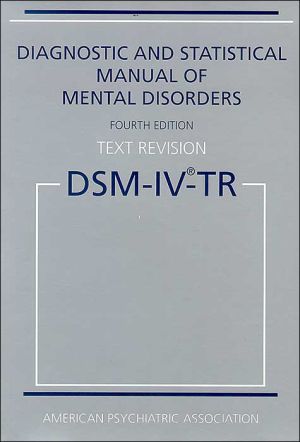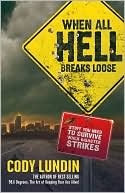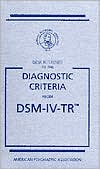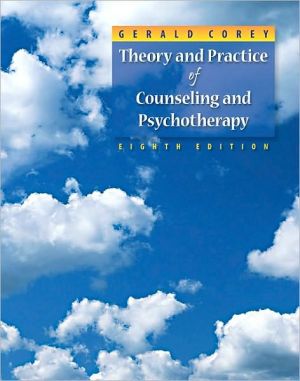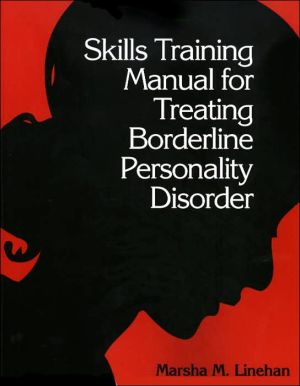Essential Skills in Family Therapy, Second Edition: From the First Interview to Termination
Family therapists commonly experience a host of nervous feelings when they begin their clinical work. Even after intensive classroom study, students often feel unprepared to address such fundamental questions as:\ What am I supposed to say to the client?\ What is the best way to organize all the information from each session?\ When do I need to come up with a diagnosis?\ Can I actually help clients when I feel so inadequate?\ How will I know whether therapy is working?\ Readable and concise...
Search in google:
Readable and concise yet immensely informative, this bestselling text prepares students and new therapists to work confidently and effectively in real-world clinical practice with families. The authors offer wise and compassionate guidance on everything from intake and assessment to treatment planning, the nuts and bolts of specific interventions, the nuances of establishing therapeutic relationships, and how to troubleshoot when treatment gets “stuck.” They help the novice clinician navigate typical dilemmas and concerns, and spell out the basics of therapist self-care. Vivid case examples, sample forms, and quick-reference tables enhance the utility of the text. New to This Edition*Updated throughout to reflect current clinical findings and practices. *Many new or revised case examples.*Now more integrative—shows how to flexibly draw on multiple theories and techniques. *New topics, including “Dealing with Clients We Dislike.”
Chapter 1 The Beginning Family Therapist: Taking On the Challenge 1Getting Started 4Managing Anxiety and Issues of Confidence 4Stages of Therapist Development 6Obsessing about Clinical Work 9Dealing with Burnout 9The Big Picture 11Conclusion 11Chapter 2 Before the Initial Interview 13Dealing with Families' Expectations and Anxieties about Therapy 13Suggestions for Initial Contact with the Client 15What Information Should Be Obtained? 17Who Should Come to Therapy? 18Initial Hypothesizing 21Conclusion 23Chapter 3 The Initial Interview 24Stages of the Initial Interview 24Developing a Connection: How to Join with Clients 25Handling Administrative Issues 27Defining Client Expectations for Therapy 31Building Motivation 36Establishing Credibility 38Conclusion: The First Session and Beyond 41Chapter 4 Guidelines for Conducting Assessment 42Initial Assessment 43Potential Issues of Harm 46Assessing for Substance Abuse 55Assessing for Biological and Neurological Factors 58General Psychosocial Assessment 63Conclusion 76Chapter 5 Developing a Treatment Focus 77Developing a Treatment Plan 78A Sample Treatment Plan 100Variables That Impact Treatment 103Conclusion 104Chapter 6 Basic Treatment Skills and Interventions 105The Rush to Intervention versus Developing a Relationship 105Basic Counseling Skills 108Interventions Unique to the Systemic Family Therapist 119Becoming More Sophisticated in Using Interventions 122Conclusion 123Chapter 7 Working with Families and Children 125Assessment of Child and Adolescent Disorders 126Family Interventions When Children Are theClients 128The Family Life Cycle Revisited 134Variations in Family Development 151Conclusion 159Chapter 8 Working with Couples 160Keys to Providing Solid Couple Therapy 161Special Topics 173When Couple Therapy Might Not Work 182Conclusion 183Chapter 9 When a Family Member Has a Mental Illness 184Individual and Family Concepts 184Individual Diagnosis in a Family Context 187Depression 192Anxiety 199Alcoholism and Drug Abuse 204Impulse Control Disorders 209Conclusion 216Chapter 10 Getting Unstuck in Therapy 217Understanding Clients' Ambivalence about Change 218The Therapist's Reluctance to Intervene 219Therapist-Client Agenda and Timing Mismatch 220Therapists' Lack of Theoretical Clarity 222Supervision 223Self-Supervision Questions 225Doing a Literature Search 226Dealing with Cancellations and No-Shows 229Difficulty Getting Other Family Members to Therapy 231Handling Secrets 232How Agencies Contribute to Being Stuck 233Countertransference: How Therapist Issues Interfere 236Dealing with Clients We Dislike 238Conclusion: A Final Reminder 240Chapter 11 Termination 241Mutual Terminations 242Therapist Terminations 246Client Terminations 249Conclusion 250Chapter 12 Family Therapy in the Future: Pertinent Issues for Beginning Clinicians 251Healthcare Reform: Implications for You and Your Clients 252Emerging Trends in Treatment 256The Personal and Professional Journey of Being a Therapist 262Conclusion 264References 265Index 279
\ From the Publisher"This book is every beginning family therapist’s bible. The second edition updates the family therapy knowledge base and presents the essential skills needed for clinical success. It makes complex theory easy to grasp and the related techniques easy to implement. I enthusiastically recommend this excellent text."--Susan H. McDaniel, PhD, The Dr. Laurie Sands Distinguished Professor of Families and Health and Director, Institute for the Family, University of Rochester Medical Center\ "As a teacher and supervisor of marriage and family therapy, I consider this my essential text for encouraging and nourishing the developing skills of our graduate students. The text not only normalizes beginning-therapist anxiety, but it is also a vehicle for growth and self-awareness, both in the classroom and in group supervision. Every student of family therapy should read this book as part of their training."--Kristina S. Brown, PhD, LMFT, Marriage and Family Therapy Program, The School of Professional Psychology at Forest Institute\ "A perennial favorite, Essential Skills in Family Therapy provides real world skills to students for their first session and beyond. This is one of the few textbooks my students take to their field placements and refer to again and again."--Diane R. Gehart, PhD, Marriage and Family Therapy Program, California State University, Northridge "An indispensable resource for clinicians interested in the basic operations of doing family therapy. The book's integrative framework blends clinical expertise with evidence-based practice and the characteristics, preferences, and context of the family. This second edition offers invaluable practical resources at the end of each chapter. For example, the assessment chapter concludes with useful guides that range from general assessment to the specifics of evaluating suicide risk, substance abuse, and mental status, as well as the parameters for holistic and spiritual assessment. Your students will be forever grateful for this book. This splendid second edition raises the bar on introductory texts for graduate-level courses in family therapy."--Guillermo Bernal, PhD, Director, Institute for Psychological Research, University of Puerto Rico "Essential Skills in Family Therapy is packed full of the information that beginning family therapists want to know once they actually start seeing clients. This impressive second edition has been enhanced even further with updates and the addition of new topics of vital clinical importance. It is an unparalleled 'almanac' of clinical issues for new family therapists, especially those practicing in a context of multidisciplinary collaboration. My recommendation of this book to our trainees now will be even stronger!"--Wayne H. Denton, MD, PhD, Director, Family Studies Center, University of Texas Southwestern Medical Center at Dallas "Patterson et al. provide exactly the kind of hands-on, 'what-to-do' guidance that every beginning family therapist needs. Even better than the original text, the second edition succinctly covers all the most important topics in family therapy practice from a broad perspective that fits well with nearly any theoretical orientation. Nicely organized, the book takes the reader from before the first session through assessment, treatment planning, intervention, and termination. It also provides guidance about such specific topics as couple therapy and working with families in the context of individual difficulties. This is the best available book of its kind for the beginning family therapist, and should be a core text for introductory graduate classes."--Jay Lebow, PhD, The Family Institute at Northwestern University\ \ \ \ \ \ Journal for the Study of Marriage and Spirituality"A very rich and practical volume for students and beginning therapists. I imagine it helps many to overcome initial problems. The outline is very clear and helpful to get a better grasp at the practice of therapy....A very practical and useful book for beginners and essential for every course on therapy in general and family therapy in particular."--Journal for the Study of Marriage and Spirituality\ \


